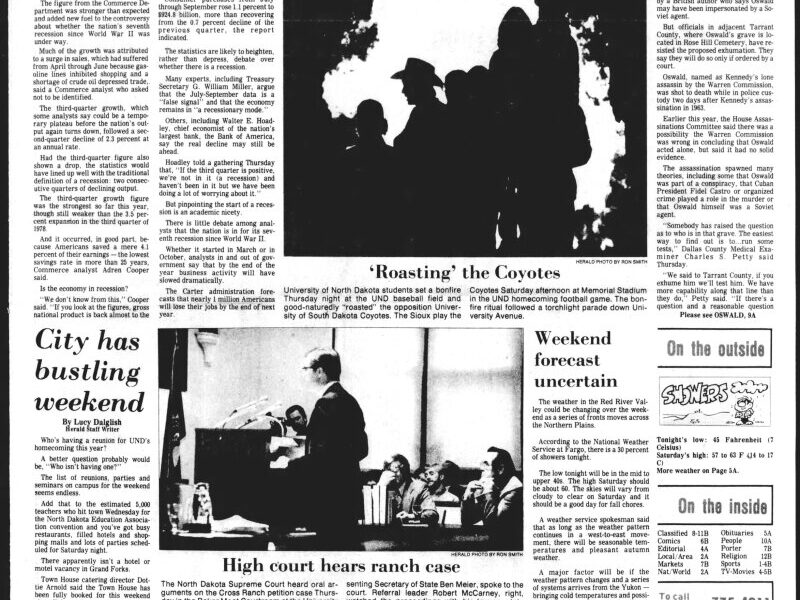UPDATE: The North Dakota Supreme Court is currently deliberating a pivotal case involving the Cross Ranch legislation, following a hearing held on October 18, 1979. This urgent matter centers on the rejection of signatures from a petition meant to refer the legislation to the voters, with implications affecting over 12,356 signatures required for the proposal.
At the heart of the debate is whether the rejection by Secretary of State Ben Meier was justified, as many signatures were deemed invalid due to lacking “full post office addresses.” Legal representatives and justices are urgently examining what constitutes a valid address, especially for residents in larger cities like Bismarck and Fargo.
“What in the hell is a post office address?”
This pointed question was posed by attorney Patrick Conmy during the hearing at the Baker Moot Courtroom at the University of North Dakota Law School. Conmy represents Robert P. McCarney, the retired businessman spearheading the petition drive, which aims to include the 10,000-acre Cross Ranch in the state park system, backed by $2.6 million in Vietnam veterans’ bonus funds.
Conmy argues that many signatures from residents in cities like Valley City were disqualified simply because they listed only their city names, such as “Bismarck” or “Grand Forks.” He contends that an approved sample petition did not require full addresses, raising questions about the consistency and fairness of the Secretary of State’s decision.
Assisting in the case, Murray G. Sagsveen, an assistant attorney general, defended Meier’s actions, explaining that most residents in larger cities cannot use only the city name as their mailing address. He revealed that of 360 postcards sent to petitioners with insufficient addresses, 290 were returned due to address issues, and many signatures were not correctly addressed during the petition process.
As the justices weigh the arguments, the implications of their ruling could have far-reaching effects on the future of the Cross Ranch and similar legislative petitions across North Dakota. With the case now under advisement, the outcome remains uncertain, but the stakes are high for those fighting for public referendum on the issue.
What happens next? The justices’ decision could reshape how future petitions are handled in North Dakota, making this a crucial moment for voters and petitioners alike. Stay tuned for updates as this developing story unfolds.







